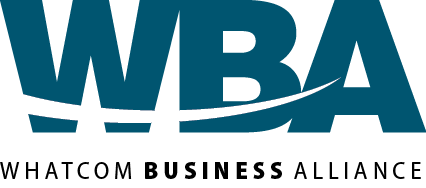Two ballot measures on the November ballot may impact your business, employees
Dann Mead Smith
Even though this is considered an “off-year election,” given that there are no presidential, gubernatorial or congressional candidates on the ballot, 2023 is shaping up to be an important one given all of the key local races in Whatcom County: county executive, county council, Bellingham mayor, numerous local council and school board races, and the proposal to increase the sales tax to build a new correctional facility.
In addition, Community First Whatcom has submitted enough signatures to qualify two ballot initiatives in Bellingham that you need know about. One would increase the city’s minimum wage above the state’s, and the other would enact “renter protections” in the city. The Bellingham City Council had the option of passing both initiatives into law but chose to send them to voters to decide in November.
- Initiative 1: increasing the city’s minimum wage
- This initiative would apply to all employees working within the City of Bellingham.
- If passed, it would set the city’s minimum wage at $1 above the state’s minimum wage starting May 1, 2024. (The state’s minimum wage increases every year on Jan. 1.) The initiative would then set the wage at $2 above the state’s starting May 1, 2025. The current state minimum wage is $15.74 per hour.
- Passage of the initiative would place Bellingham’s as one of the highest minimum wages in the state.
- According to research conducted by Washington Policy Center, “raising the wage increase will reduce jobs in the city, reduce available work hours, and will cause further inflation. Some businesses will relocate away from areas that have high minimum wages, creating longer commutes for workers that chose to stay with the employer or elimination of the jobs completely.”
- Furthermore, according to Washington Policy Center, a study from the University of Washington has shown that Seattle’s $15 minimum wage “did little to offset widening inequality.” This comports with research done throughout the country and work that the Washington Policy Center has done in the past 10 years on the effects of “artificially high, government set, minimum wage policies.”
- Initiative 2: “protections” for renters
- The measure, if passed, would require landlords to provide 120 days’ written notice of a rent increase greater than 8%. It’s interesting to note that 120 days is already the time period that was enacted by the Bellingham City Council, so this initiative would not change this part of city law. It would provide “rental relocation assistance” equal to three times the fair market rent (requiring that landlords pay three times the unit’s rent or the Department of Housing and Urban Development market average, whichever is larger).
- According to sponsors, the initiative would allow renters whose rights are violated to seek remedy via civil action, including a monetary amount twice the amount of relocation assistance. Violations of the ordinance constitute civil infractions, with fines that escalate with each occurrence.
- There are at least a couple provisions in the initiative that could be challenged in court, and some people have pointed out that per the rental assistance section, some landlords might just focus on 7.9% annual increases – something that proponents were probably not intending when drafting this.
It’s good to remember that a similar measure calling for 90 days’ notice was rejected by Bellingham voters in 2021, alongside a different measure similar to the current one asking for an increase in the minimum wage. See the Sep/Oct issue of Business Pulse to find out where some of the local candidates running this year stand on these two important ballot measures.
